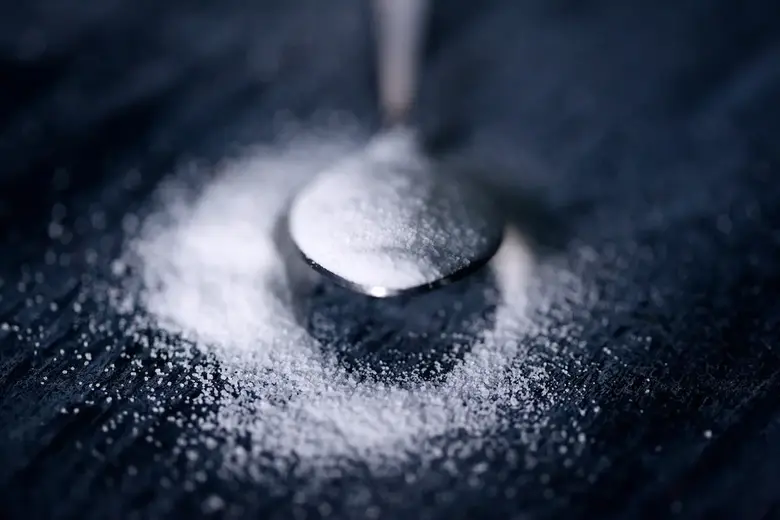Is sugar a seasoning?

When you go to a restaurant, there are a few basic items that you expect to be available for your needs. In most places there will be things on the table like sugar, salt, pepper and sometimes additional items as well.
Many of us think of these items as complimentary condiments to our food and drink when we order.
Condiments and complimentary items may vary. For example, at a barbecue joint, you can find a variety of barbecue sauces. At a burger joint, you’ll probably find ketchup and mustard.
Sugar is a give or don’t give item, and it really depends on the restaurant. Most of the time, when sugar is provided, it is intended for the use of tea or coffee.
Is sugar a seasoning? Sugar can be considered a seasoning when used as a garnish to enhance the flavor of another dish. However, it can also be considered an ingredient when used in any type of confectionery. Cases where sugar can be considered a seasoning include adding it to coffee or as a topping for fruit.
In this guide, we will answer the question of whether sugar is a condiment. We’ll define what a seasoning is and let you know how sugar may or may not fall into that category.
What is a seasoning?
Let’s start by talking about the basic definition of a seasoning.
Seasoning is defined as a spice, sauce, or compound that is added to cooked or prepared foods.
This spice, sauce, or compound is intended to enhance flavor or perhaps impart a specific flavor to complement a dish.
In the same sense, there are also items that are considered table condiments. These are items that are available on the table or used on the table to add flavor. Things like salt and pepper would easily fall into this category.
When we think of the term condiment, how many of us think of food dressings like ketchup, mustard, mayonnaise, hot sauce, and the like?
Many of these items are added as toppings or added for your own taste preferences during cooking or after serving an item.
You’ll find that when one person defines a seasoning, the description and understanding of it can vary significantly.
However, if you look at the phrase “spice, sauce, or compound intended to enhance flavor,” there are certainly times when sugar could qualify as a seasoning.
There are other times when sugar would actually be classified as an ingredient rather than a seasoning.
What is an ingredient?
Now let’s see what an ingredient is. Ingredients are defined as substances that are present in a mixture.
Basically, if you’re making a dish or recipe of some kind with mixed or compiled items, those mixed items are ingredients.
So if you are making homemade cookies and you use sugar in the cookie dough, this particular case makes the sugar an ingredient and not a seasoning, due to the use of sugar at the time.
So what is sugar?
It’s very clear, right? If you take into account the basic definitions and the infinite uses of sugar, sugar can be considered a condiment or an ingredient, depending on its use at the time.
If you add sugar to your coffee or use the sugar as a garnish on something that is served, these actions make the sugar a condiment.
When you visit the restaurant that you like and there is a can of sugar next to the salt and pepper, that sugar is a table condiment in that specific case.
When you’re baking or cooking or preparing an item, whatever it is, and sugar gets mixed in during the process, sugar becomes an ingredient.
What you will find is that sugar is an ingredient most of the time, but there are times when sugar is actually a seasoning as well.
The main difference is that seasonings are used to enhance flavors, while ingredients are used as part of a mix.
Sugar can and does fall into either category; so the answer is yes, sugar can be a seasoning. Then again, it’s not always a condiment, so that too.
Conclution
We hope you find this guide to understanding whether or not sugar is a condiment a useful resource. Keep in mind that sugar is versatile and can fall into different categories at different times.











